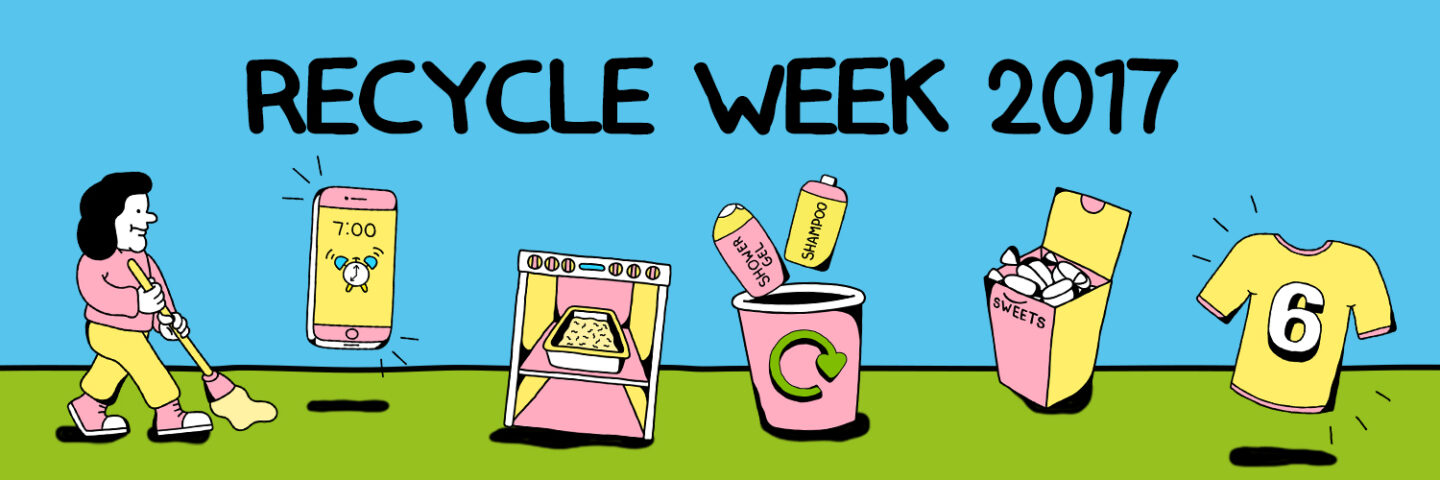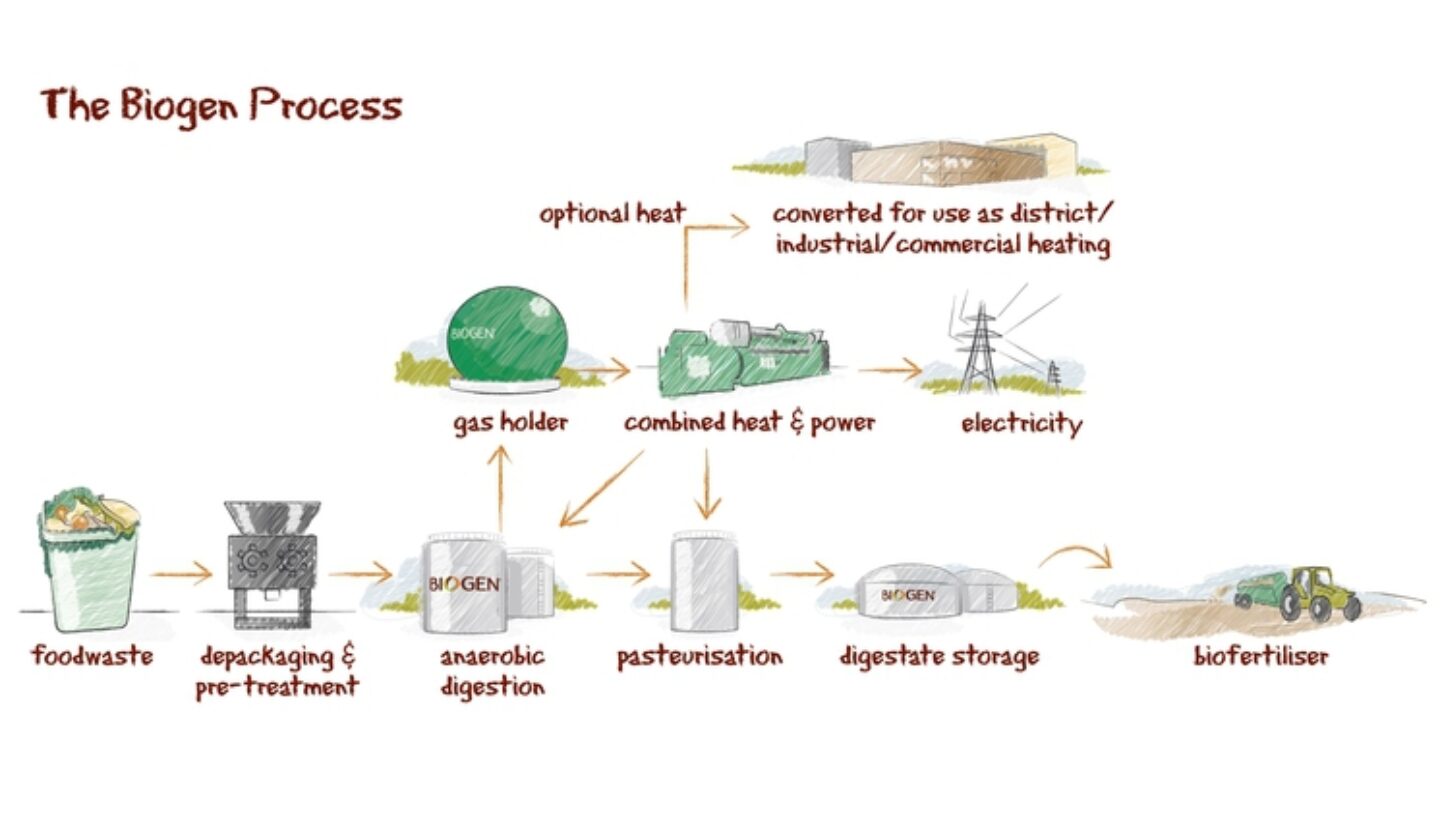Wednesday 27th September 2017

Here’s some food for thought. Did you know that food waste which is sent to landfill doesn’t harmlessly breakdown, in fact, it releases harmful greenhouse gases such as methane which is 25 times more potent than CO2. This Recycle Week we are asking you to think about the food that you might waste and what actually happens to it. The best thing we can do with our food (particularly cake) is to eat it, however it is inevitable that there will be some scraps. Whilst these may seem insignificant, the bigger picture is that there are many benefits to recycling this unavoidable waste. At Paper Round, we specialise in closing the loop and it is an important part of our processes. All of the food waste we collect from businesses is stored at our MRF with a full truck then transported to Biogen – an Anaerobic Digestion facility. Anaerobic digestion is a process by which organic matter is broken down to produce biogas and bio fertiliser. This process occurs in the absence of oxygen in a sealed tank called an anaerobic digester (see the diagram below).

Anaerobic Digestion Process (Image credit: Biogen)
‘What goes around comes around’ – bio-gas from this process is used as a fuel in a combined heat and power unit to generate renewable energy (electricity and heat). This in turn powers equipment in homes to make more food. Bio-fertiliser can be used on farmland to help grow crops to make more food. And in terms of cake…
Content from YouTube has been blocked by your settings. Enabling this content will set cookies on your device. See our Privacy Policy for more information.
Enable <div class=”theme-secondary”> <div class=”uncloak uncloak–cloaked uncloak–mid” data-uncloak-new> <div class=”video video–embed” data-video-embed> <iframe data-lazy-src=”https://www.youtube.com/embed/iGr2GUwjUNM?rel=0″ width=”1920″ height=”1080″ frameborder=”0″ webkitallowfullscreen mozallowfullscreen allowfullscreen allow=”autoplay” class=”video__embed”></iframe> </div> </div> </div>
Clearly it is important to recycle unavoidable food waste, and by doing so you are helping to close the loop. The icing on the cake is that we can actually get something valuable back from recycling our food waste.
Here is a list of common items people think aren’t accepted in the food recycling bins to get your started:
- Tea Bags
- Bones
- Tissue Paper – small amounts of food contaminated tissues are accepted in this stream
- Biodegradable cutlery